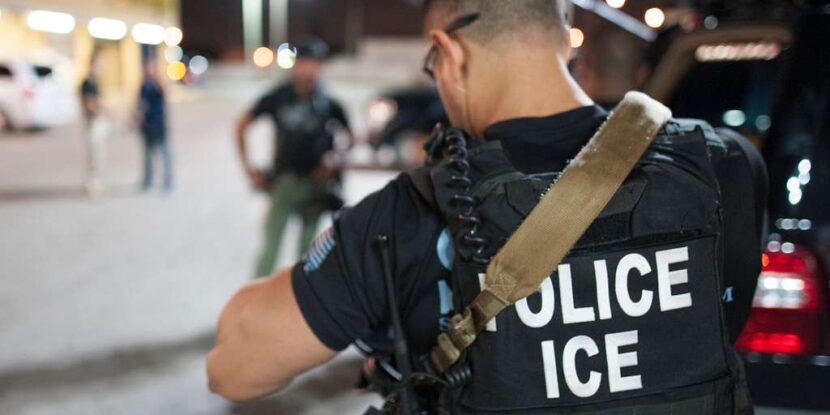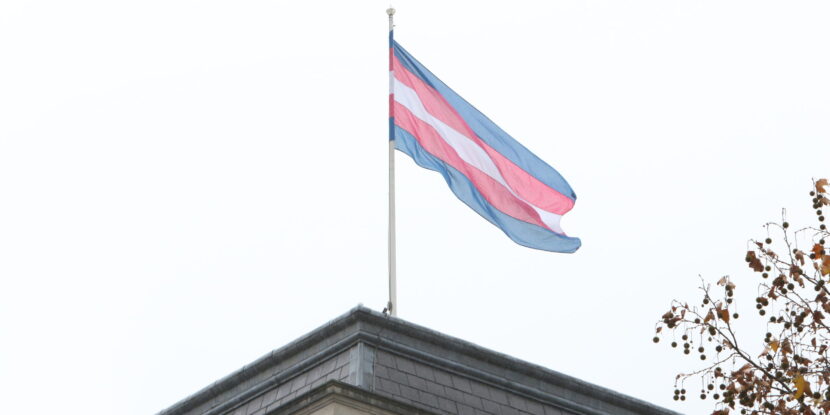
PULSE POINTS:
❓What Happened: A group of detained Venezuelan men in Texas barricaded themselves, covered cameras, and threatened to take hostages, according to U.S. Immigration and Customs Enforcement (ICE).
👥 Who’s Involved: The Trump administration, 23 Venezuelan detainees accused of gang affiliation, ICE officials, and immigration attorneys.
Your free, daily feed from The National Pulse.
📍 Where & When: Incident occurred on April 23 at the Bluebonnet Detention Facility in Texas; detainees were moved to another facility on May 4.
💬 Key Quote: “They threatened to take hostages and injure facility contract staff and ICE officers,” stated Joshua D. Johnson, acting ICE director for the Dallas office.
⚠️ Impact: The administration claims the incident underscores the danger posed by alleged Tren de Aragua gang members and justifies using the Alien Enemies Act to execute swift deportations.
IN FULL:
The Trump administration has escalated its efforts to deport a group of Venezuelan detainees accused of gang affiliations, citing an April 23 incident at a Texas detention facility. Immigration and Customs Enforcement (ICE) officials allege the men, identified as members of the Tren de Aragua gang, barricaded themselves inside their unit at the Bluebonnet Detention Facility, covered surveillance cameras, and threatened to take hostages.
According to a sworn statement by Joshua D. Johnson, acting ICE director for the Dallas office, the detainees “refused their breakfast trays and barricaded both the front and rear entrance doors of their housing unit using bed cots.” Johnson also stated that the group attempted to flood the unit by clogging toilets and blocked windows to prevent observation. “They threatened to take hostages and injure facility contract staff and ICE officers,” Johnson added.
On May 4, the 23 men were transferred to the Prairieland Detention Center in Alvarado, Texas, a move that placed them under a different court jurisdiction. The administration claims the alleged actions of these individuals highlight the risks posed by Tren de Aragua members in detention and justifies invoking the Alien Enemies Act of 1798 to expedite deportations.
The detainees reportedly fear being sent to El Salvador’s Terrorism Confinement Center (CECOT). The Supreme Court has temporarily blocked deportations in this case while attorneys challenge the administration’s actions.
Members of Tren de Aragua flooded into the United States under the former Biden-Harris regime, taking over entire apartment complexes in some cities. Members have been linked to extortion as well as other serious crimes, including murder.

PULSE POINTS:
❓What Happened: Four major Pride events in Britain have banned political parties from participating officially, citing solidarity with the transgender community.
👥 Who’s Involved: Birmingham, Brighton, London, and Manchester Pride organizations; British political parties; transgenders; the Supreme Court of the United Kingdom; the Equality and Human Rights Commission (EHRC).
Your free, daily feed from The National Pulse.
📍 Where & When: Britain, announcement made following a Supreme Court ruling that determined sex is determined by biology, not gender identity, for the purpose of equality law.
💬 Key Quote: “In this moment, we choose to stand firmer, louder, and prouder in demanding change that protects and uplifts trans lives,” said Pride organizers.
⚠️ Impact: Political parties are excluded from major Pride events unless they commit to returning transgender “women” to women’s single-sex spaces and sports, amidst ongoing debates over gender recognition laws.
IN FULL:
Four of the United Kingdom’s largest LGBT Pride organizations have announced a ban on political parties participating in their events in an official capacity, citing solidarity with transgenders. Birmingham, Brighton, London, and Manchester Pride groups issued a joint statement explaining the decision, which they said was driven by a lack of commitment to transgenderism among political parties.
The announcement follows a Supreme Court ruling that defined “woman” under the Equality Act as being based on biological sex. While this decision has been welcomed by many citizens and campaigners, particularly lesbian and gender-critical groups, it has been resisted by transgender activists.
The Pride groups stated that the ruling highlighted the need for urgent action and described their move as a refusal to “platform those who have not protected our rights.” They also called for reforms, including full “protections” under the Equality Act—likely meaning renewed access to women’s spaces—as well as improved access to transgender medical interventions and sustained funding for trans-led services.
“In this moment, we choose to stand firmer, louder, and prouder in demanding change that protects and uplifts trans lives,” the Pride groups said in a joint statement.
The Supreme Court ruling stems from a case involving the Scottish Parliament’s gender balance legislation, which included transgenders in quotas for women. The court clarified that the Equality Act’s definition of sex is based on biology, not gender identity, even for those holding a government Gender Recognition Certificate.
The Equality and Human Rights Commission (EHRC) subsequently issued guidance emphasizing that access to single-sex spaces must align with biological sex.
Some groups, such as Scottish Lesbians, welcomed the clarification, stating it protects women’s rights. They have criticized Pride organizers for excluding lesbians by prioritizing transgender issues.
The decision to exclude political parties affects events that collectively attract over a million attendees annually. Political figures, including Prime Minister Sir Keir Starmer and former Prime Minister Boris Johnson, have historically participated in Pride events.
Image by Foreign, Commonwealth, and Development Office.
show less

 1 month ago
3
1 month ago
3








 English (US) ·
English (US) ·